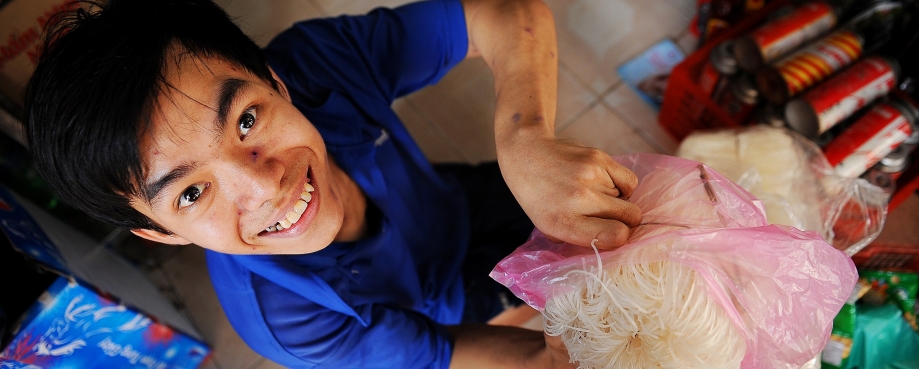
In this Leadership Series blog, Matthew Rycroft, the Permanent Secretary at the UK’s Department for International Development (DFID) reflects on how business can help tackle discrimination. In particular, he looks at tackling the discrimination faced by people with disabilities. It’s why DFID is supporting our latest guidance on disability inclusion in the global supply chain, which relates to ETI’s Base Code Clause 7; that no discrimination is practiced.
The 2030 Agenda for Sustainable Development commits to leaving no-one behind – it requires that all of the Global Goals and targets set by the UN in 2015 be met for all segments of society.
Similarly, the UK Government is committed to challenging the barriers that deny poor people opportunities and limit their potential; this commitment extends to the most marginalised, including those with disabilities.
It’s one of the reasons why, in 2017, DFID’s first Economic Development Strategy publicly affirmed our commitment to do more to help people with disabilities access economic opportunities. That’s because:
- In low and middle-income countries, people with disabilities face many challenges accessing decent work.
- These are caused by a number of factors such as a lack of training, inaccessible workplaces and a lack of a vibrant formal sector.
- The loss from exclusion of people with disabilities from labour markets is estimated to be between 3 and 7% of GDP.
2018 Global Disability Summit
Last month, we hosted the Global Disability Summit alongside the Government of Kenya and the International Disability Alliance. It looked at a whole range of issues including access to a quality education and the right technology.
It was also a catalytic moment in driving positive change on the economic empowerment of people with disabilities around the world, and fighting the stigma and discrimination that limits economic and political opportunity.
And in DFID, we want to do more.
Our ambition is to support people with disabilities as employers, employees and consumers, ensuring those in the informal sector are protected by labour legislation, expanding access to decent jobs, improving accessibility and supporting businesses to target people with disabilities for their goods and services.
As such, we recognise the vital role business has to play. It’s why we will drive forward access to a decent education and the provision of job specific skills, so that people with disabilities are in the best position to take up economic opportunities.
ETI’s business guidance on disability inclusion in global supply chains, which DFID is supporting, outlines important steps private sector companies can take in order to become a disability inclusive employer.
It defines, clarifies and explains concepts and international regulations. It also showcases best practice examples around how UK and international businesses are creating good jobs for people with disabilities.
Partnership with the private sector
DFID is convinced that the economic empowerment of people with disabilities can only be realised through dynamic and innovative partnerships with the private sector.
That's why we have just launched UK Aid Connect, led by Sightsavers and Leonard Cheshire Disability, which will do just that.
It means putting in place partnerships that tackle the systemic barriers that exist in workplaces, supply chains and in society more broadly.
It’s also why I believe that by partnering with organisations like ETI, DFID can better encourage businesses to contribute to economic development.
And to do so in ways that are socially responsible, environmentally sound and ensure that no-one is left behind.
The Leadership Series
ETI's Leadership Series of blogs commemorates ETI's 20th Anniversary and links business to human rights. The aim is to re-affirm the case for ethical trade and encourage a constructive approach within a concept of 'principled pragmatism' as outlined within the UN’s General Principles for Business and Human Rights (UNGPs). Previous blogs in the series include:
ETI and me – why it’s important to empathise, talk and act to change supply chains
“When shall we three meet again?” The potential of collaborative action to change the world
How can international brands ensure homeworkers are treated fairly?
